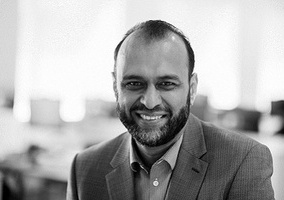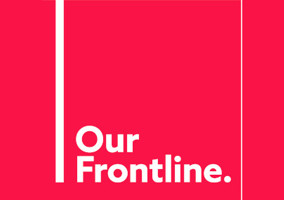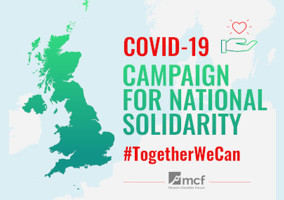As we move further into 2020 and a second wave of Covid-19, anxieties and worries about the strain on UK communities are everywhere. Local and now national lockdown may seem like the only way forward to control the wave and lessen the devastation but now is also the time to empower all sections of society.
The lockdown of March was harsh on all groups and there were many who suffered disproportionately. From financial strain, rising unemployment, plus the impact on mental and physical health, Covid-19 changed everything and took us to the edge. Now as we go into a second lockdown through to December, it’s important we know not just where we are vulnerable but also where our strengths lie.
Faith communities stepping up
Long before Covid-19 and since the pandemic, faith-led charities have supported huge numbers of disadvantaged people by providing essential services that have been otherwise inaccessible. From churches, synagogues, temples and mosques opening their doors as food banks, to community kitchens, befriending and mental health support, care for the elderly and more; faith-led community groups and grassroots charities have helped many of the groups most badly affected by Covid-19. In BAME communities where Covid-19 claimed a disproportionate number of lives, Muslim and other faith groups supported grieving and isolated families including those plunged below the poverty line by the lockdown.
Faith communities, and the grassroots and charitable organisations within them, rely on community resources and are driven by an energy to deliver into wider society. With faith community fundraising comes capacity for volunteers and an “all hands-on deck” approach when crisis hits. Through the first wave, faith-led groups were quick to respond, meeting the needs of disadvantaged and isolated people using community languages, embedded community links to connect with the hardest to reach, cultural understanding and safe faith spaces. Communities of colour across the UK are diverse, encompassing a range of cultures and languages. For many, faith is a hugely important part of identity and provides a trusted network of support during times of crisis.
Real recognition and real support are never more needed.
Empowering faith groups to strengthen and develop communities through Covid-19 and beyond requires support. The Kruger Report Levelling Up Our Communities was recently published and met with some mixed response. Danny Kruger, MP and former charity chief, produced a report with some valid points in a call for change in empowering communities. His recommendations for faith groups makes interesting reading, drawing on the power of faith groups to tackle a range of social issues. However, understanding the diversity of the different faith communities and the strengths within them is essential to really provide tangible support to the range of groups that they serve.
Now, with a second lockdown, faith-led charities will undoubtedly step up swiftly again. However, the strain upon them should not be underestimated and nor should they be taken for granted. Faith-led charities need to be uplifted through better recognition and understanding within the mainstream. The misconception that faith communities ‘only help their own’ could not be further from the truth and has only led to faith groups feeling cautious in confirming their identity and impacted upon them receiving the help they need. Understanding and respecting the power of faith groups as legitimate charitable forces is essential to meet needs and establish equity.
Protecting those disproportionately affected
Wave 1 showed us many things – one being that BAME groups were disproportionately affected by Covid-19 on every level – from rate of infection to economic impact. The Runnymede Trust’s report Over-exposed and under-protected has since highlighted exactly why and how these communities have suffered more. It’s therefore important that this time around we do all we can to lessen the impact on BAME communities.
Although faith groups are often embedded, providing services from within the community, they do need support to continue and develop when donor income is low. Strategic resources, capacity, authority, and potential may be high but faith-led charities can still be cash dry.
Diversifying income streams through mainstream support of funding and policy is crucial. Muslim-led charities in particular have been shown to face barriers to accessing grant funding with just 16% successfully securing funds in response to Covid-19 aid delivery - and yet many Muslim-led charities were the first to respond to BAME communities during the first wave. However, many trusts and foundations still have criteria which excludes religious organisations, or which place great restrictions on project work without adequate understanding of the inclusivity, diversity, and complexity of faith. Now is the time not just for adapting to new ways of working and delivery but also diversity of income and genuine funding support.
As we celebrate the Interfaith Week, lets not forget, faith-based charities with their access and connection to grassroot communities, volunteers and space they represent a strategic reserve that we should, support and utilise.
Working with faith-led organisations means that they need to be recognised, respected and their value in reaching communities needs to be accepted. We need to learn lessons from the first lockdown and draw upon all sections of society to protect the most vulnerable. This includes legitimising and accepting faith-led groups and the good that they do. Giving equal space at the table and providing practical support is absolutely vital for faith groups to have confidence in government policy, manage the second wave and lockdown, protect and save lives.
Related articles
Fadi Itani: How Muslim charities are pulling together to respond to the Covid-19 crisis
Fadi Itani from the Muslim Charities Forum explains how its Our Campaign for National Solidarity is helping organisations work together during the coronavirus crisis.












